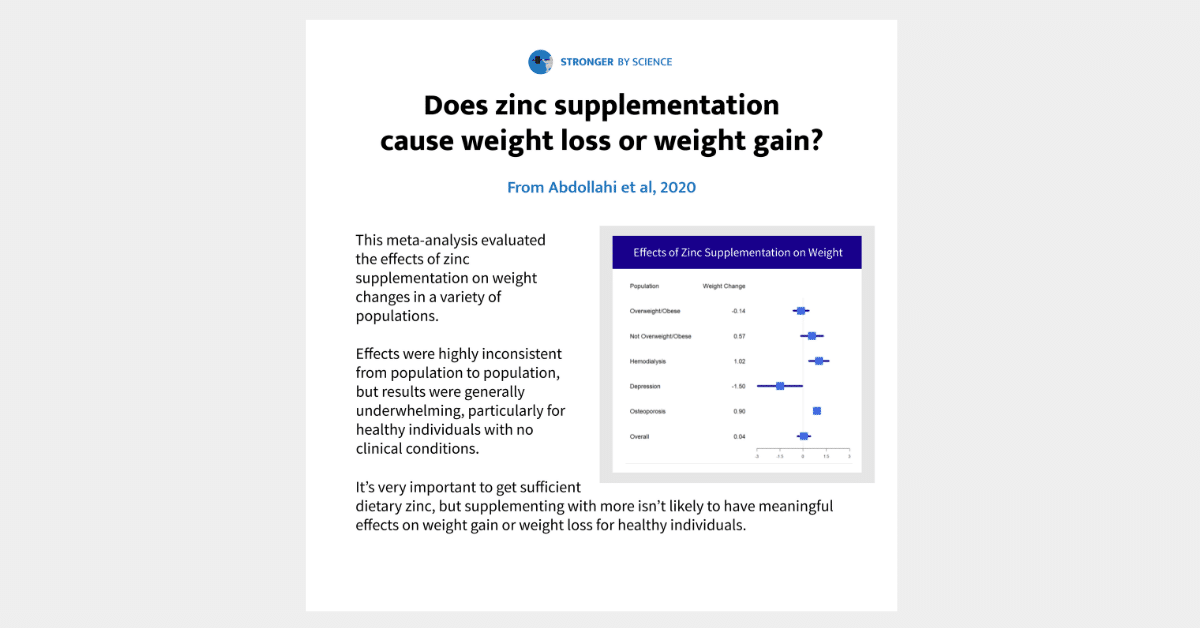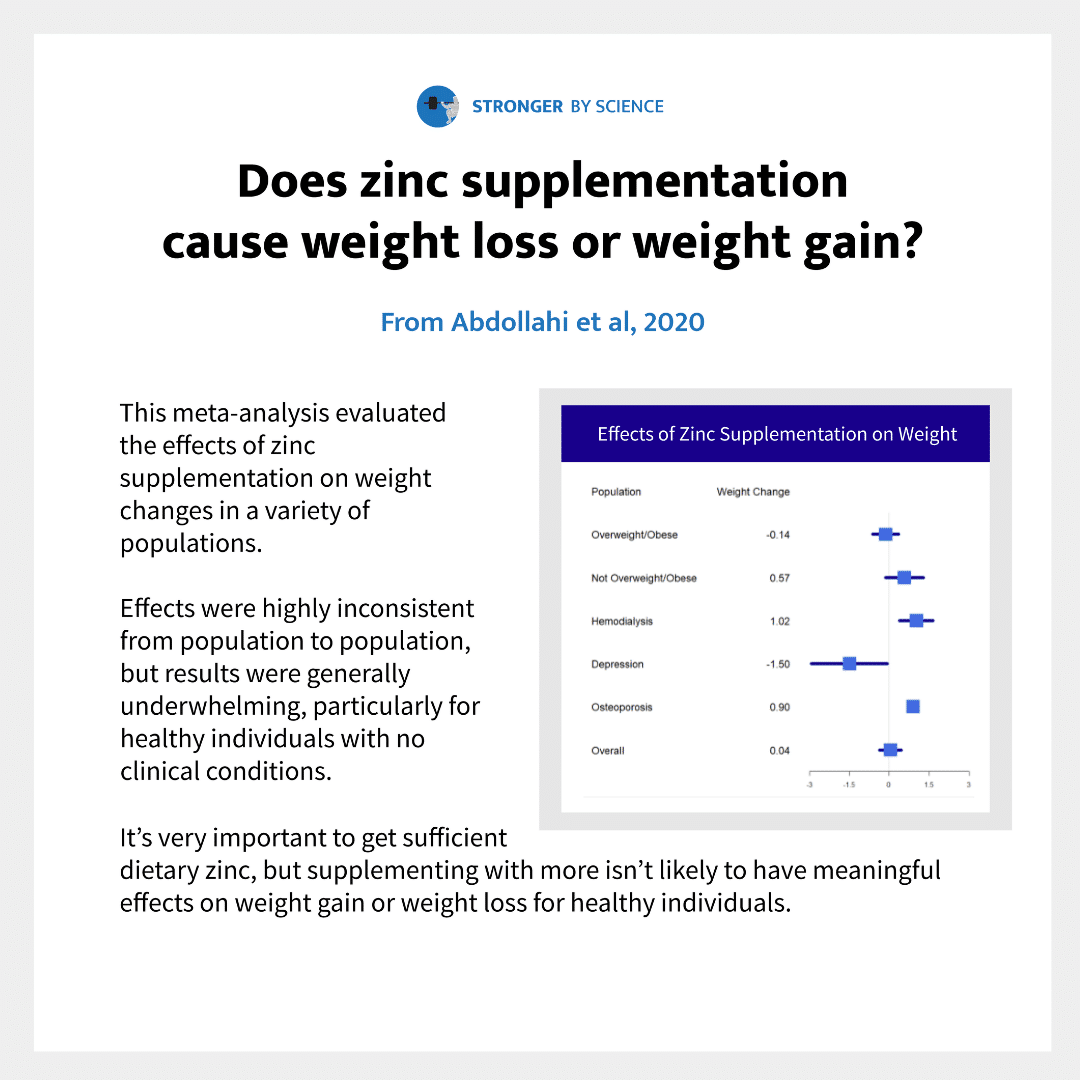Without question, zinc is an important dietary mineral. It’s involved in metabolism, immune function, DNA synthesis, protein synthesis, hormone production, wound healing, cell division, regulation of oxidative stress, and the activity of hundreds of enzymes. It also plays an important role in appetite, taste sensation, and food intake, and there are theoretically mechanisms by which zinc could either increase or decrease food intake, depending on the circumstances.
As a result, this meta-analysis evaluated the effects of zinc intake on body weight in a variety of different populations. Overall, its effect on weight loss was virtually zero (-0.04kg), but the estimated values varied among study populations. When results were stratified by BMI, effects were not significant for all overweight/obese individuals (BMI ≥ 25) or all individuals with BMI < 25. There was a statistically significant weight loss effect in overweight/obese individuals with no other health issues (-0.55kg), but this effect washed away after adjusting for study length. In contrast, body weight was significantly increased by zinc supplementation in people with osteoporosis or on hemodialysis, while it was decreased in people with depression. However, these findings for clinical populations are based on extremely limited data (1-3 studies each) from geographically isolated studies, so the findings should be interpreted very cautiously.
The bottom line: Overall, it doesn’t seem likely that zinc supplementation is going to facilitate much weight loss (or gain) in healthy folks that aren’t deficient. A recent review also found that there currently isn’t enough evidence to suggest that zinc supplementation meaningfully increases strength, endurance, or testosterone in exercising adults. However, stress, sweat loss, insufficient dietary intake, and large amounts of exercise can contribute to low zinc levels, so athletes and lifters should aim to achieve sufficient (but not excessive) daily zinc intake. Zinc can be found in a variety of foods including shellfish, beef, poultry, nuts, legumes, seeds, dairy, and fortified cereals, in addition to most multivitamin supplements.





